Laminate Delamination
What is Delamination?
The North American Laminate Flooring Association states that most laminate floors are made of the following four layers:
- An impact resistant top layer
- A printed design layer in various colors and patterns
- A high-density fiber board comprises the core
- The bottom-balancing layer, to equalize pressure and keep the board straight
A special type of adhesive is applied between the layers. The surface, inner layers and balancing layer are then fused together with a press operation. Delamination occurs when there is a separation of one or more of these layers.
Delamination
The photograph below is from a floor inspection we conducted in Atlanta, Georgia. On the affected boards, the laminate paper is peeling from the edges.
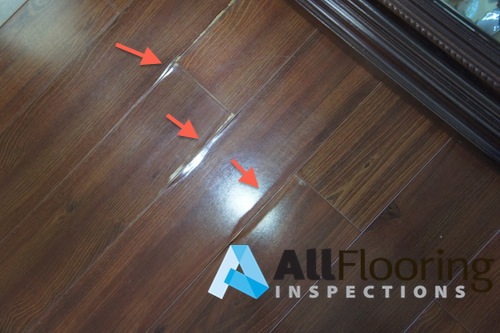
Other boards in this installation displayed bubbles on the surface of the laminate.
Raised Edges and Corners
In the picture below, there is one board that is slightly delaminated. The edges and corners of this board are raised and lifted up. The top layer is separated from the core board.
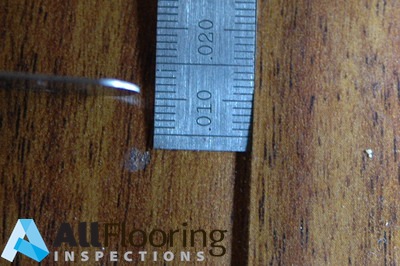
Separation of Layers on a Laminate Board
These photographs show a cross view of laminate floor boards which have separated.
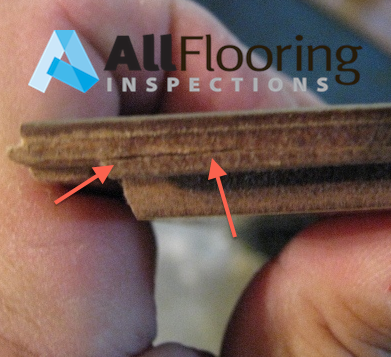
As vertical pressure is applied by hand, the delamination becomes more visible (refer to the photograph below). This type of separation can sometimes result in floor noise, as the laminate moves when it is walked upon.
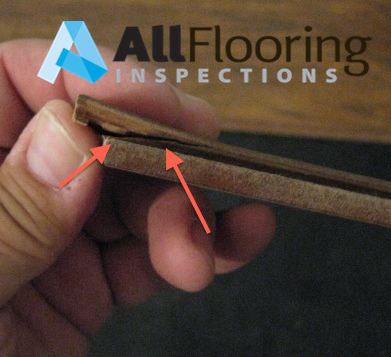
This problem can also have a visual appearance of the corners, ends, or edges lifting or curling up. This issue, however, should not be confused with buckling, tenting, or swelling.
Delamination, Chipping, and Board Fracturing
If the issue is very severe, the laminate boards can become chipped, or even fracture apart at delaminated areas. That being said, chipping is not always a result of (or related to) delamination.
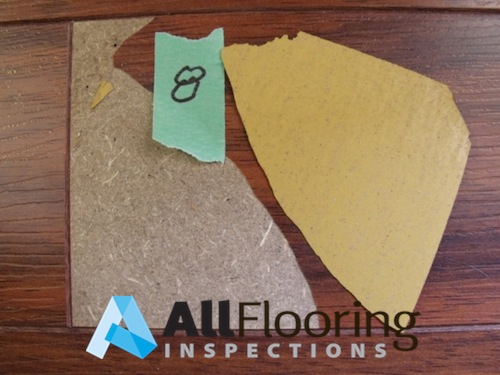
Delaminating Joints
The picture below was taken in an apartment in Manhattan, during during a laminate flooring inspection we conducted. The joints on these boards have become delaminated. The edges (side joints) are lifted, and are curling up.
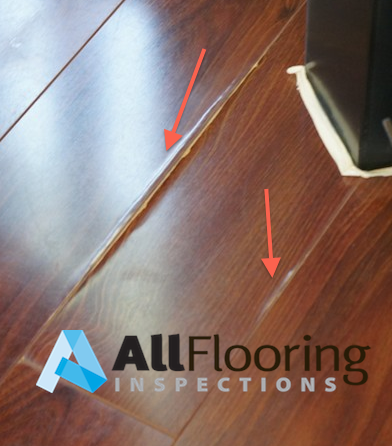
The floor inspector found low levels of moisture and relative humidity inside the apartment residence, as well as a lack of expansion space throughout the perimeter of the installation.